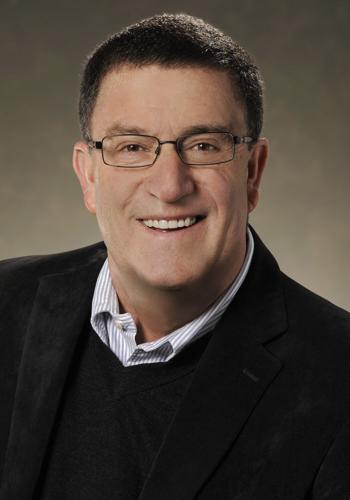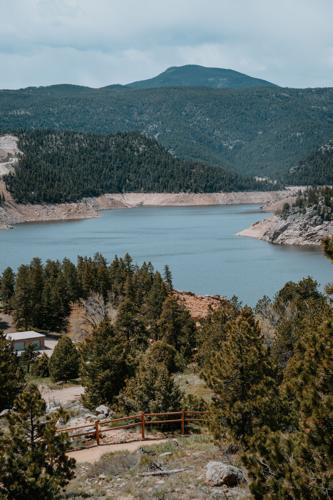COLUMN: An abundance of delay and paralysis | Sondermann
Amidst the dismay and recrimination that currently occupy Democrats, an active discussion is taking place around a new theory of governance that has become known by a single word, “abundance.”
True, this dialogue is mainly limited to wonky types and policymakers. But it holds the potential to redefine the party around an agenda of opportunity rather than scarcity; action and optimism instead of impasse and paralysis.
This budding movement is largely an outgrowth of three recent books: the bestselling “Abundance” written by Ezra Klein and Derek Thompson, “Why Nothing Works” by Marc Dunkelman, and “Stuck” by Yoni Applebaum.
Taken together, the thesis of these three works is that America, especially blue America, is drowning in process. The authors contend with abundant evidence (excuse me) that litigation, regulation and out-of-proportion inclusiveness, all run amok, have combined to grind major undertakings to a halt essentially.
This affliction certainly applies to Colorado and we will get to that shortly. But, first, let me cite some broader examples.
California set out to build high-speed rail from the Bay Area to Los Angeles via a statewide vote in 2008 and the issuance of $9 billion in bonds. 17 years later, such plans have all but been abandoned despite recent exhortations. Instead of connecting these two population centers, the current goal is to build such rail from Modesto to Bakersfield. That hardly qualifies as a game-changer. And the cost of this intermediate spur: Between $88.5 billion and $127.9 billion. Bet on the higher number.
In 2021, the Joe Biden administration secured passage of a program with $42.5 billion of funding to extend internet access to rural communities nationwide. Four years later, the number of Americans who have gained connectivity due to this program approximates zero.
In New York, plans to build something fitting and functional to replace the underground mess that is Penn Station have gone precisely nowhere through five gubernatorial administrations.
On and on it goes. America has supplanted a can-do mentality with a special aptitude for not getting things done. There are exceptions, for sure. After a Philadelphia bridge collapse in 2023, state and local authorities managed to get it rebuilt and reopened in 12 days.
Note that such examples involved waiving countless rules and procedures that typically bog down most projects. Reducing the theory of abundance to its essence, Pennsylvania Gov. Josh Shapiro talks of “getting stuff done.” Even as he regularly substitutes a different word with the same first letter for “stuff.”
No serious person wants America to replicate China where individual rights and environmental concerns are trampled in the name of progress. But this involves a balance of interests and rights. Over recent decades, that balance across too much of our country has tipped in favor of inaction over action.
NEPA, the National Environmental Policy Act, now 55 years old, was never intended to be an all-purpose, all-encompassing logjam. Plenty of law on the books address specific environmental issues – clean water, hazardous materials, Superfund cleanup, and more. But NEPA has evolved into the weapon of choice for virtually anyone who opposes anything via delaying tactics, non-stop litigation, overly broad interpretations and bottomless bureaucratic paperwork.
Such examples abound in Colorado In a time of drought and wildfire, the first might be the most egregious. When the controversial Two Forks Dam was deep-sixed way back in 1990, the expansion of Gross Reservoir in Boulder County was the preferred environmental alternative. Denver Water began that expansion process in 2002. This is not a new water storage project. It simply seeks to add capacity by raising the height of the existing structure.
Nonetheless, delay became the order of the day. While the Environmental Defense Fund has endorsed the project, other groups predictably filed suit. Just this April, a federal judge ruled that Denver Water could finish construction of the heightened wall but, wait for it, could not then fill the reservoir behind it. I am no lawyer but that defies logic.
Plans to rebuild portions of the always-jammed I-270 across the northeast metro area have been stalled by lawsuits and endless public hearings.
Denver City Hall recently approved a five-year, $15 million study mandated by NEPA to assess impacts of overdue expansion of Peña Boulevard.
This should not be that complicated. Add some lanes across the prairie. Supplement it with bus rapid transit. Double-down on RTD’s light-rail A line.
But, no, let’s study it for five years. With straight face, bicycle activists suggest the answer lies in bike lanes as if I am going to pedal my way to the airport with a rolling suitcase in tow. Sixty months down the road, count on lawsuits from anyone left remotely unsatisfied.
We have not even touched on the housing crisis and the impact of this mindset of unending process, protocol and challenge. Though consider this: An affordable housing project takes 49 months to permit in California versus 27 months in Texas. If constructed, the California project will be nearly three times as expensive on a square foot basis.
I am out of space, another scarce commodity. Tune into this fresh debate which has salience across the divide, but particularly on the left.
Whatever description of American greatness you embrace, ask yourself if it is gained through lawsuits and bureaucracy or by again doing big things.
Eric Sondermann is a Colorado-based independent political commentator. He writes regularly for ColoradoPolitics and the Gazette newspapers. Reach him at EWS@EricSondermann.com; follow him at @EricSondermann.
Eric Sondermann is a Colorado-based independent political commentator. He writes regularly for ColoradoPolitics and the Gazette newspapers. Reach him at EWS@EricSondermann.com; follow him at @EricSondermann
Eric Sondermann is a Colorado-based independent political commentator. He writes regularly for ColoradoPolitics and the Gazette newspapers. Reach him at EWS@EricSondermann.com; follow him at @EricSondermann






